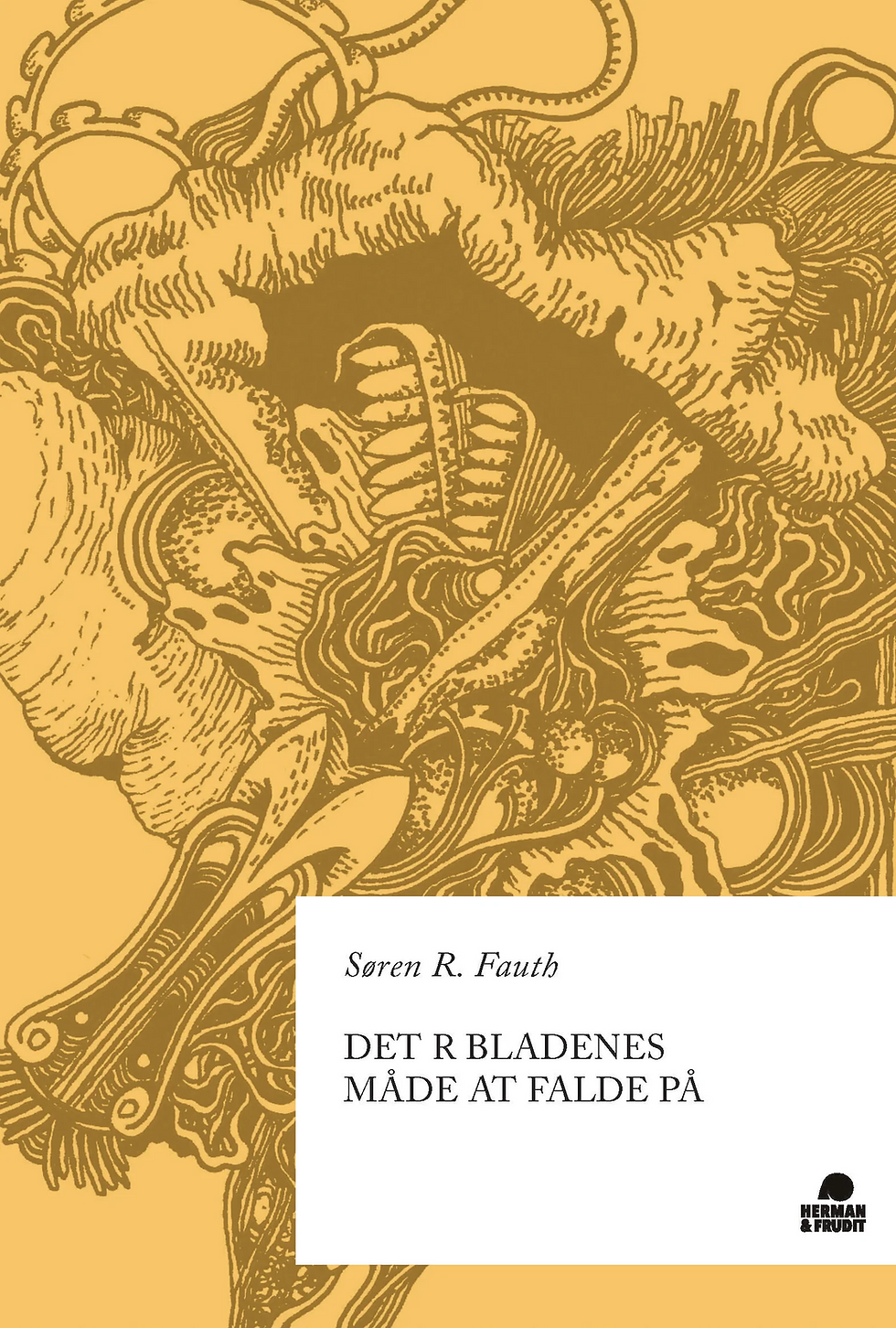Stephen Rodefer SAFETY (1977)
- Matt Travers
- Jan 18, 2021
- 4 min read
Updated: Mar 7, 2021

FAMOUS IN CRETE This chapbook currently available online for free should be re-published and better known. Not only is it an incredibly readable reconstruction of Sappho’s extant poetry in a modern American idiom, but it is also, to my knowledge, one of the best love poems of the late twentieth century, and highly modern insofar as gender becomes no obstacle to romantic expression. In ‘Safety’, biological sex is the body's means to create separation, distance and longing and nothing more. Regardless of where you start from, what is love but the force which draws us to fully empathise with the pleasure of our lover’s body, and in the process makes us feel most at home in our own? The voice of Sappho, while both feminine and masculine, is entirely that of Rodefer: “The thought of loving you Drives me wild. I become A little girl again, Screaming at her mother.” Sure, such lines evoke a comically endearing image of Sappho as child crying out for more maternal affection than she can receive, but we can also imagine Rodefer’s love as something which is so intense that it sends him back to an idyllic pre-sexed childhood wish for wholeness with his mother so complete he turns feminine. It works both ways, and these rich ambiguities occur throughout. One wonders why, then, this work was so seldom heard, given that his strong translations of Villon, published just a year before, would become a staple of his readings and are now perhaps his most well-known poems. One can speculate. Where Rodefer’s ‘Villon’, like Rodefer himself, performs as idiot savant amongst the sleazy criminal underworld and meets criminals with hearts of gold and prostitutes whose manipulative powers match the Church Fathers, in ‘Safety’, Rodefer makes himself vulnerable to the charge of mawkishness. Arguably, this is a constant danger in his verse which his generation of post-Beat writers sought to avoid, even at the cost of becoming L=A=N=G=U=A=G=E poets. To my mind, if Rodefer’s translations are the poetic equivalents of method acting, then how much more of an achievement would it have been for Robert DeNiro to have played Betsy rather than Travis? Either way, ‘Safety’ exists as a threat to Rodefer’s identity as sprawling intellectual wit and resigned gentle cynic as presented in ‘Four Lectures’. And he is all the better for it. Was ‘Safety’ suppressed after their dedicatee had spurned him? The poems certainly make him seem capable of such glorious melodrama. In the standard translation, Sappho famously writes of her own pathetic attachment in third person: “Mad heart, ‘Whom shall I persuade To admit you again to her love, Sappho, who wrongs you now? If she runs now she’ll follow later, If she refuses gifts she’ll give them. If she loves not, now, she’ll soon Love against her will.” Where Sappho revels in her inability to resist her callous lover, Rodefer will show his understanding of how declarations of love have a tendency to hurt unless there’s a perfect equilibrium of affection, before he ends up with a strophe in spite. “If this embarrasses you Forget it. If this injures you Forgive it. If it angers you Become someone’s friend […] If they spoke sweetly to you of love It was a parody Of uneventfulness.” Rodefer’s translation involves a kind of osmosis of Sappho’s verse, and it is interesting to consider how it was composed. One imagines a table of concrete images and corresponding sentiments mirrored in what he saw and felt. On the one hand, his translation seems loyal to his sense of what torsions of feeling may have moved Sappho to write, which likely weren’t the pristine timeless coldness of diction as presented in the papyrus forensics. Such techniques, while laudable in intention, make Sappho seem elliptical and obscure. Consequently, to be faithful, Rodefer has to make her emotional life come alive for himself. Was ‘Safety’ the dominant feeling he thought she sought to capture? At the level of meter, Rodefer eschews the anachronistic reconstruction of what today is erroneously called Sapphic verse, with its eleven-syllable mechanically patterned strophes, and, closer to the original, disperses the lurching trochees throughout his short-clipped lines from the title onwards. A collector of vintage dresses, his Sappho will wonder with longing at the new dress bought for the beloved at a flea market, hoping to see her ‘suppleness/Fully extended within it.’ Did Rodefer begin to collect dresses after writing this? The challenge with reviving classical poetry is that it has a tendency to drag with it a chilling po-faced reverence, which, at best, is usually offset with a note of irony which downplays the sincerity of the original. This is not Rodefer’s failing. Perhaps Sappho's most famous lines are most often rendered with a kind of glib grandeur: “Some say horseman, some say warriors, Some say a fleet of ships is the loveliest Vision in this dark world, but I say it’s What you love.” Rodefer gives us: “What’s better than sucking ice On a hot summer’s day? Or in the winter after a giant snowstorm, Going for a walk under the moon. I’ll tell you— What beats them both Is two people lying in one sleeping bag In early spring.” He keeps the original suspense and twist in Sappho’s original and comes up with an unabashed sentimental equivalent. I say that's a modern figure for Aristophanes's conception of love as a return to primordial wholes. Rodefer’s Sappho is not simply smoothed out; rather, he loves her imperfections: it means he’s got more of a chance of winning her over, and maybe she’ll prefer the one who sees her flaws and celebrates. Is this the logic of a manipulator or a masochist? Doesn’t matter much if we're both parts of one and the same.



Comments